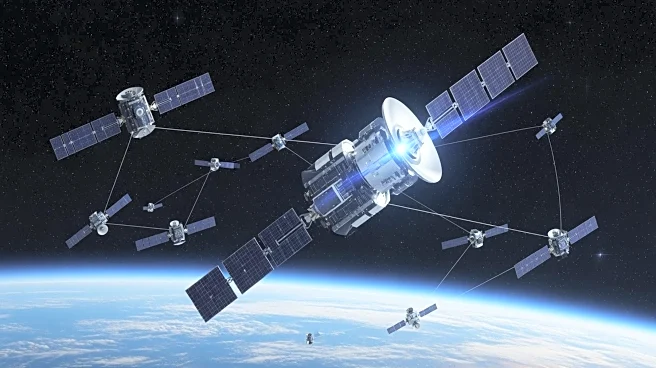What's Happening?
SpaceX has successfully launched its 10,000th Starlink satellite, marking a significant milestone in the company's expansion of its satellite network. According to data from Celestrak, a non-profit satellite tracker,
Elon Musk now controls two-thirds of all active satellites in low-Earth orbit. As of October 20, 2025, SpaceX's Starlink constellation comprises 8,562 of the 12,955 active satellites, with an additional 1,500 satellites either inactive or no longer in orbit. This dominance has raised concerns about the power Musk holds through the Starlink network, which he claims provides him with unparalleled real-time global economic data.
Why It's Important?
The expansion of SpaceX's Starlink network has significant implications for global communications and internet access. By controlling a majority of active satellites, Musk has the potential to influence global connectivity and data flow. This raises questions about the concentration of power in the hands of a single individual and the potential impact on competition and regulation in the satellite industry. The dominance of Starlink could affect other satellite operators and lead to increased scrutiny from governments and regulatory bodies concerned about monopolistic practices and national security.
What's Next?
SpaceX's closest competitor, OneWeb, currently operates 651 satellites, but several Chinese initiatives aim to deploy over 10,000 satellites by the 2030s. This could lead to increased competition and potential regulatory challenges as countries seek to balance technological advancement with security concerns. The future of satellite communications may involve more international collaboration and regulation to ensure equitable access and prevent monopolistic control.
Beyond the Headlines
The ethical implications of Musk's control over a significant portion of the satellite network are profound. It raises questions about privacy, data security, and the potential for surveillance. As satellite technology continues to evolve, there may be calls for more transparent governance and oversight to ensure that the benefits of global connectivity are distributed fairly and do not compromise individual freedoms.









